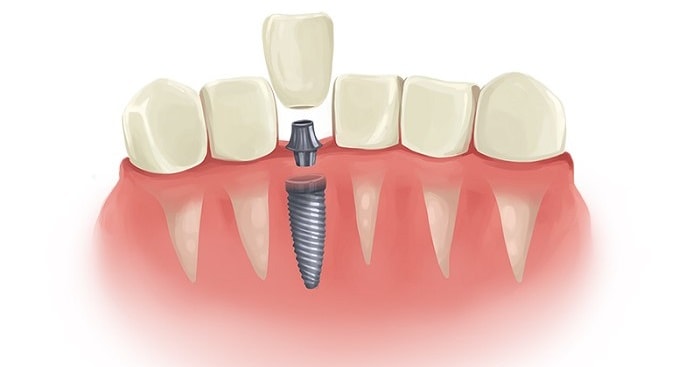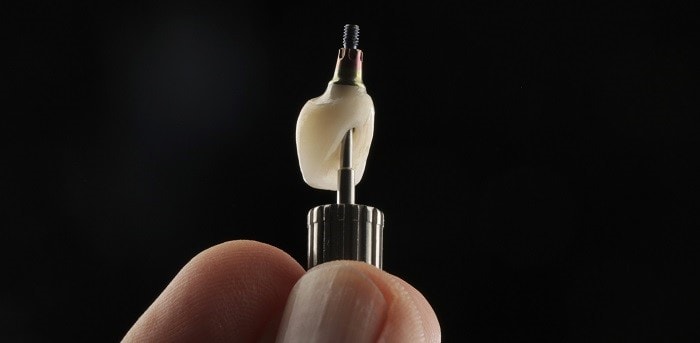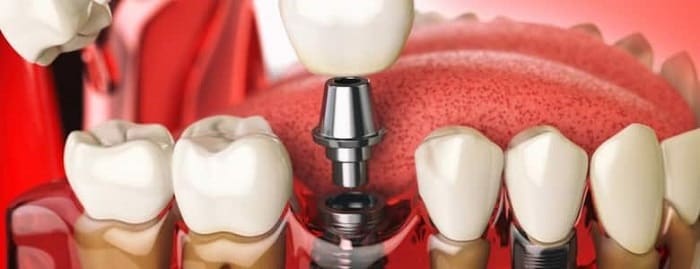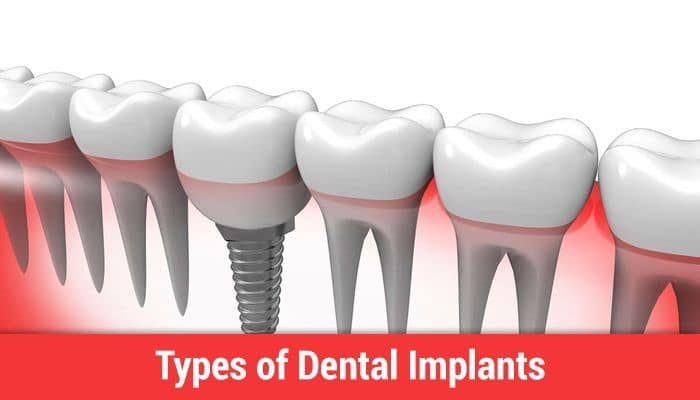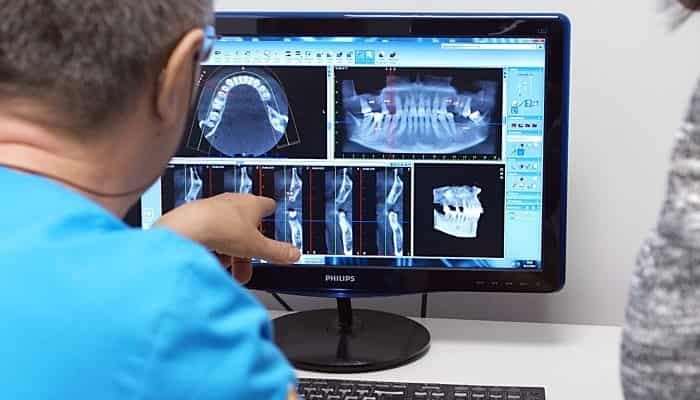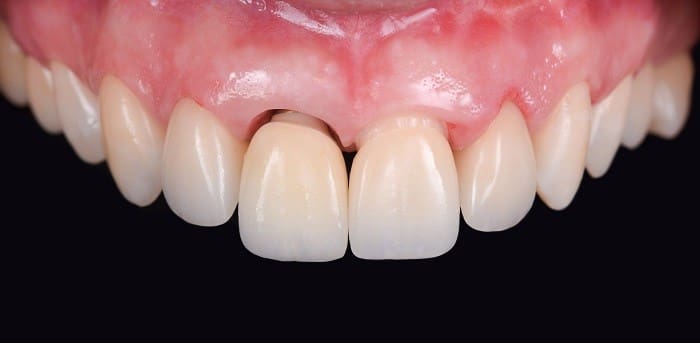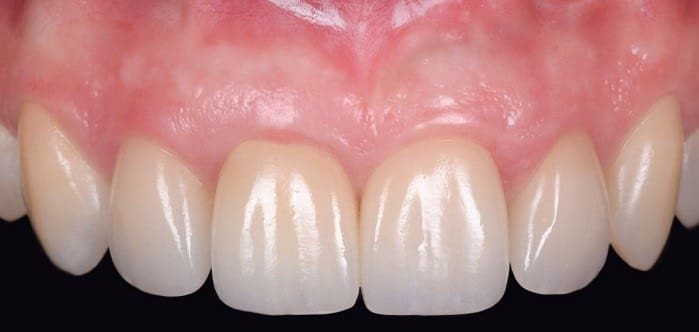The decision to replace missing or damaged teeth with dental implants can be life-changing. They can restore your smile, your confidence and your ability to enjoy the foods you love. Dental implant specialist in Laguna Niguel, Orange have placed thousands of implants, enabling patients with a wide range of dental needs to enjoy a new lease of life. Dental implant specialist will create a bespoke treatment plan to suit you, ensuring that you are fully informed and comfortable every step of the way.
Dental implant specialist in Laguna Niguel, Orange offer a full range of solutions for replacing missing teeth from a single implant to providing you with a full set of functioning teeth in a day. Full mouth dental implants are referred to Teeth-in-a-Day or All-on-4. Find out more.
Benefits Of Dental Implants
You might need dental implants because they are quite simply the best way to replace a missing tooth. They act as a natural tooth root, allowing the crown to be attached. They enable us to restore your natural teeth.
Look And Perform Just Like Natural Teeth
Implants are permanently attached and secure. They are cared for just like natural teeth and enable you to eat whatever you like.
Protect Your Long-erm Dental Health
Implants help preserve bone in the area of the missing teeth and protect your facial structure. They prevent movement and drifting of teeth which can disrupt your bite.
Eliminate The Discomfort And Inconvenience Of Dentures
Implants are cleaned just like natural teeth and do not cause the gum irritation and inflammation commonly associated with dentures.
Preserve Healthy Neighbouring Teeth
Unlike other means of replacing missing teeth, Implants do not require healthy neighbouring teeth to be drilled or removed.
Strong And Long-lasting
Implants are a very durable and long lasting solution for missing teeth with a success rate of over 97%.
Components Of Dental Implant
The components of a dental implant consist of:
Titanium Implant
The dental implant is the titanium screw which is inserted in the bone, replacing the root of the missing tooth. The length and thickness of the dental implant depend on the quality and dimension of available bone tissue.
The Pillar
The pillar is the component which ensures a perfect seal between the dental implant and the crown, and is available in titanium, gold or ceramic.
Crowns, Bridges Or complete Prostheses
Once the dental implant and the pillar are inserted, the next step is positioning the crown, a bridge consisting of several teeth, or a total prosthesis for the entire mandible (lower jaw) or maxilla (upper jaw).
Am I a Candidate For Dental Implants?
That’s not something you can determine for yourself. You’ll need to have a complete exam so that your dentist can see how much bone volume and density you have in the area of the missing tooth, since a certain amount of bone is needed to support an implant. But even if your bone is deficient, simple bone regeneration techniques that have been used successfully for years can usually improve the health of your tooth-supporting bone enough to make you a candidate for implants.
What Are The Treatment Options For Dental Implants?
Dental implants can support a variety of dental restorations:
- Single tooth replacements: one implant and one crown replace a single tooth.
- Multiple tooth replacements: multiple missing teeth can be replaced with multiple implants supporting fixed bridgework. For example, a three-unit bridge to replace three teeth in a row will be comprised of two implants and three crowns; or multiple implants can support an even greater number of false teeth. Usually four to eight implants are needed to replace a full arch (jaw) of teeth (10 or more crowns) using fixed bridgework.
- Combinations of fixed and removable bridgework: implants support a section of fixed bridgework, to which a removable section is attached.
- Over-dentures: where two or more implants provide stabilization of a denture (set of removable false teeth). Over-dentures are now considered the standard of care for those who have lost all of their teeth in one or both jaws.
- Anchorage for tooth movement (orthodontics): temporary implants can serve as very stable anchor units for orthodontic devices to allow quicker and easier tooth movement.
- Temporary bridgework: micro-mini implants can be used to support bridgework temporarily while permanent implants are healing so that at no time will a person be without teeth.
Procedure
Digital Stage
After initial consultation, a digital clone of the patient’s mouth is assembled, using x-rays, 3D imagery, photos and videos. Position, shape and size of future teeth is determined. Based on this, dental implant specialist in Laguna Niguel, Orange will determine ideal position of each implant and best implant type for the case.
Patient receives a complete treatment plan, with all procedures, costs and aditional explanations. A treatment coordinator (TC) will provide any logistic assistance patient requires from this point on.
Surgical Stage
Implant surgery is performed. In more complex cases, at this stage, bone grafts, soft-tissue grafts, or other aditional procedures are performed if necessary. After surgery, patient will leave with provisional restorations. One week after, sutures are removed. This stage is followed by an 8 week healing period needed for the osteo-integration of the dental implants.
Restorative Stage
One final impression is taken by the dentist and is being sent to the lab. At this point, the lab has ideal biological, structural and functional conditions to finish the case, as initially designed. Final works are manufactured and screw-retained or bonded on the dental implants.
What Are The Success Rates Of Dental Implants?
Dental implants traditionally have a very high success rate. Documented research and clinical studies indicate success rates of over 95% — the highest of any tooth-replacement option. Even in areas of low bone density, success is quite common. Once integrated and functional, implant restorations can last a lifetime.
Indications Before And After Surgical Procedures
Before or after any surgical procedure you will receive written instructions from either the surgeon, or a nurse. Here you can have an overview of basic instructions in case something is not clear, or things you might have forgotten. Following these simple instructions, will give you more comfort and decrease your healing time.
Pre-surgical
Two weeks prior to any surgical procedure dental implant specialist in Laguna Niguel, Orange recommend professional cleaning, and the use of oral rinse that contains 0.12% clorhexidine and doesn’t contain alcohol.
This protocol will ensure healthy tissues and gums, and will provide optimal biological parameters for any type of procedure. It will result in minimal surgical trauma and faster healing.
Post-surgery
Use Oral Rinse in the morning and in the evening. Gently clean teeth and gums when possible with a soft tooth brush. Do not touch the area where surgery has been performed. Do not touch the sutures. Do not eat hot or hard food. Don’t consume any dairy products. Don’t smoke during healing time.
For sensitivity, you can take anti-imflammatory medication, and hold a pack of ice on the area, with 10 min pauses. Do not sleep on the side with the surgery, also heat will increase imflammation. Do not take antibiotics unless prescribed by your surgeon.
What Care Is Needed For Dental Implant Care?
The good news is that dental implants require no more attention than your natural teeth — except they will never decay or have any root canal problems. The only real concern is gum disease or too much stress applied to the implants through clenching or bruxing (teeth grinding) habits.
Avoiding gum disease requires flossing and brushing your teeth on a daily basis, along with regular professional cleanings every three or four months to keep the gum tissues surrounding your implants healthy.
If you have a grinding or clenching habit, you should wear a nightguard to protect your implants and your investment.
Other than that, your dentist will exam your implants periodically to make sure everything is healthy and stable and will last a very long time.
How Does General Health Influence Dental Implants?
Certain health conditions and habits can have a bearing on the success of dental implants. For example, if you have uncontrolled diabetes, your ability to heal in general will be adversely affected. This in turn affects the osseo-integration process by which your dental implants attach to your bone tissue. Smoking reduces blood supply for healing, so surgical healing in general is less than optimal in a smoker (though smoking does not disqualify you from receiving implants). The osteoporosis drug Fosamax, if taken for more than three years, can compromise bone healing. Osteoporosis itself can affect bone density, making it difficult for implants to be strong enough to handle the normal functional stresses associated with biting and chewing, for example.
What Causes Dental Implants To Fail?
Although it is rare, an implant can fail to fuse to the bone properly or it can come loose from it for a variety of reasons. Failure to remove food particles and plaque from the gums near the implant on a daily basis can lead to a bacterial infection known as peri-implantitis (“peri” – around; “implantitis” – inflammation of the tissues surrounding implants). This infection can destroy bone and loosen the implant. Sometimes it’s the number of implants that’s at fault: too few implants are placed to handle too much stress — a situation known as overload. Sometimes an implant-supported tooth can stick up a little higher than the other teeth, meaning it will be subject to more biting and chewing force. This is why it’s so important to choose a qualified professional to install your implants.
Can Periodontal (Gum) Disease Influence Dental Implants?
As with peri-implantitis, gum disease is a bacterial infection that can result in bone loss. And continued bone loss can cause implants to fail. You may be more susceptible to gum disease if you are diabetic, pregnant or taking birth control pills.

